District of Columbia
New appeal for help in solving 1987 D.C. gay murder case
U.S. Navy commander was fatally stabbed outside Chesapeake House gay bar
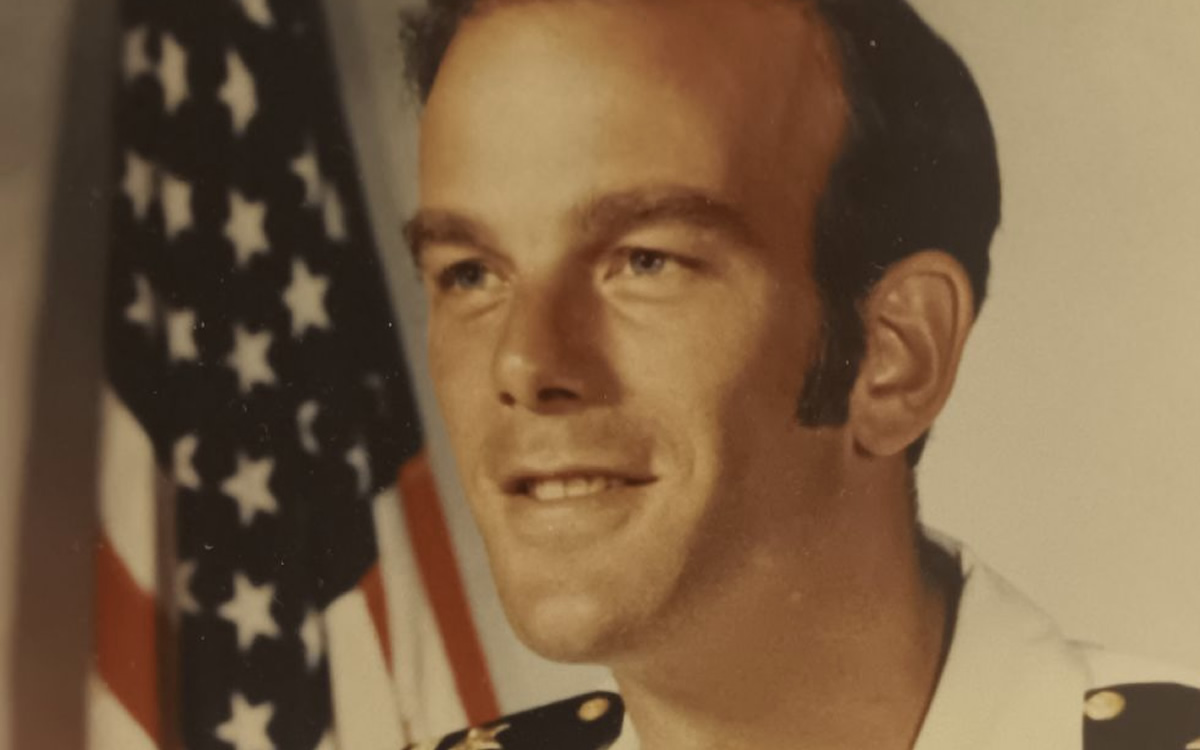
The family of a 43-year-old gay U.S. Navy commander who was stabbed to death shortly after midnight on Jan. 1, 1987, minutes after he left a D.C. gay bar in a yet unsolved case considered a hate crime, is appealing to the public for help in providing police with a tip that may lead to the identity of two male suspects.
D.C. police at the time of the murder said Commander Gregory Peirce, an Alexandria, Va., resident who served as a staff officer at the Pentagon, was approached by two men appearing to be in their early 20s as he and a man he was with left the Chesapeake House, a gay bar at 946 9th St., N.W. at about 12:15 a.m.
A Washington Blade story published on Jan. 9, 1987, reported that police sources familiar with the investigation said one of the male suspects stabbed Peirce in the chest and neck, then kicked him repeatedly while he lay unconscious at the site of the stabbing in a parking lot behind the Chesapeake House.
The second suspect chased the man who was with Peirce toward the entrance of the bar, slashing the back of the man’s coat with a knife as the man sought help from the Chesapeake House doorman, Tom Vaughn, police sources told the Blade.
A police spokesperson said Peirce was pronounced dead about 90 minutes later at George Washington University Hospital as a result of a severed neck artery, the Blade reported. The man he was with, who told police what he observed, was not injured.
Amanda Soderlund, Peirce’s niece, told the Blade she and her family remain hopeful that the two young men involved in the fatal stabbing 36 years ago could be brought to justice.
She said her beloved uncle, who did not openly identify as gay while serving in the Navy, was just a few months away from retiring and being honorably discharged from the Navy.
“My uncle was an incredible man,” Soderlund said in an Oct. 5 phone interview. “We have a very large family,” she said, and family members have long tried to find out exactly what happened and why when Gregory Peirce became D.C.’s first homicide victim of 1987.
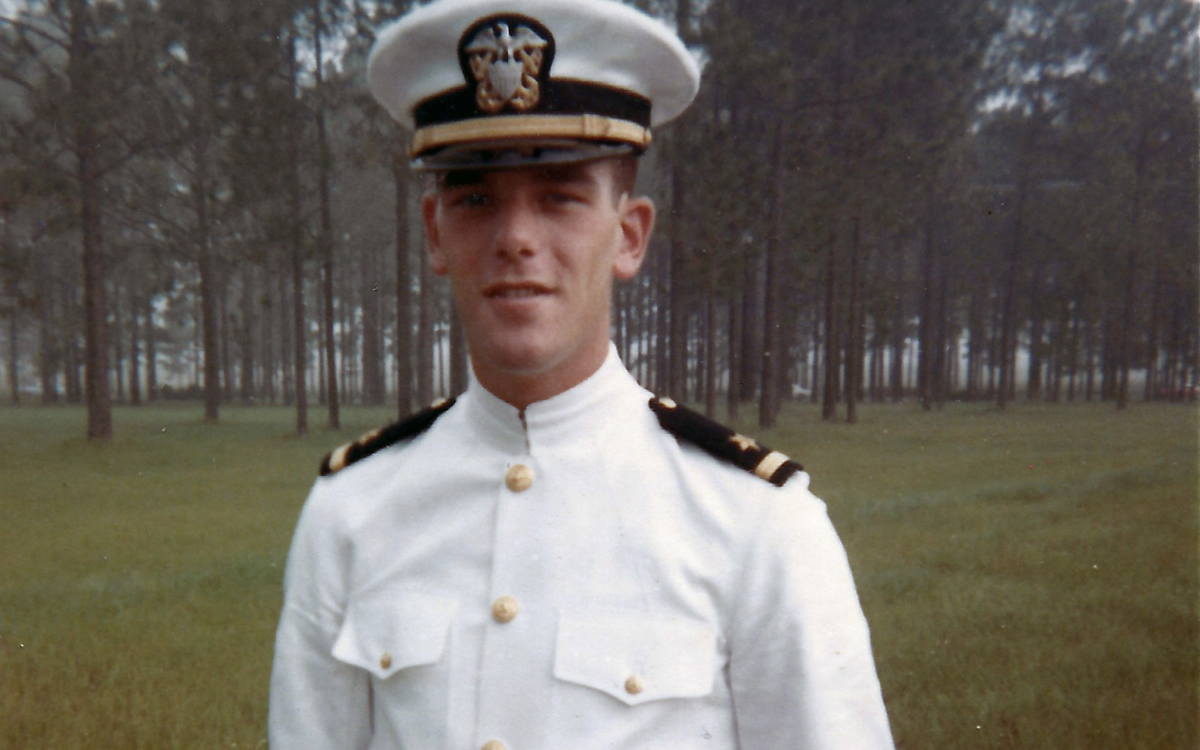
Longtime D.C. police homicide Detective Danny Whalen, who is assigned to the homicide unit’s Cold Case Squad, told the Blade last week that the Peirce murder case is among the large number of old homicide cases that cannot be solved unless new information surfaces.
“You know, we would love nothing more than to bring these people to justice,” Whalen said of the two unidentified suspects in the Peirce murder. “The detectives who worked the case at the time exhausted everything in their power,” said Whalen. “And if they could have made an arrest, they would have.”
Whalen noted that the two suspects, who witnesses said appeared to be in their 20s, would likely be in their late 50s or early 60s at this time, assuming they are still alive. Whalen and other law enforcement officials have said for investigators to make an arrest in an old case like this, one or more people who know something about the case and who may have known the two suspects need to come forward with information.
Soderlund, Peirce’s niece, said she has reached out to the Blade and may reach out to other news media outlets to draw attention to the case, with the hope that someone reading about it in the press might just come forward with a tip that could lead to an arrest.
“The Metropolitan Police Department currently offers a reward of up to $25,000 to anyone that provides information which leads to the arrest and conviction of the person or persons responsible for each homicide committed in the District of Columbia,” according to a D.C. police statement issued at the time police announce a new unsolved murder case.
The statement says anyone with information about a case should call police at 202-727-9099. It says anonymous information can be submitted to the department’s TEXT TIP LINE by sending a text message to 50411.
Although other news media outlets, including the Washington Post, initially reported that police said the motive for the attack against Peirce and his companion appeared to be a robbery gone bad, police sources and witnesses from the Chesapeake House told the Blade the incident appeared to be an anti-gay hate crime or gay bashing.
The man who was with Pierce told police the incident began when the two male suspects approached the two men as they left the Chesapeake House and one of them said, “Wonder if they have any money,” according to an account by the Washington Post.
But the man accompanying Peirce also told police the two attackers never specifically asked for or demanded money. Words were exchanged between the four men in the parking lot and a fight broke out, police sources said, which led to Peirce being stabbed.
At least two police sources said the man who stabbed Peirce had time to search for Pierce’s wallet while Pierce was lying unconscious in the parking lot, but the attacker did not do so.
Instead, the attacker began kicking Pierce repeatedly while he lay motionless and bleeding, one of the police sources told the Blade back in January 1987. “For all practical purposes [Pierce] was dead when this guy was kicking him,” the source said.
In its Jan. 9, 1987, story on the Peirce murder, the Blade reported that experts familiar with anti-gay violence, including police investigators, consider the action by one of the two suspects in the Peirce case who repeatedly kicked Peirce while he lay unconscious as a form of “over kill” often triggered by a deeply held hatred toward and fear of homosexuality.
Chesapeake House employee Michael Sellers told the Blade the week following the murder that a group of young males were yelling anti-gay names, such as “faggot” and “queer,” at several Chesapeake House patrons and another of the bar’s employees when the patrons and employee stood outside the bar about an hour before Peirce was stabbed.
One of the employees and two of the patrons told the Blade the males who were shouting at them appeared to match the descriptions of the two men who attacked Peirce and the man with Peirce. But homicide detective Whalen told the Blade last week that there is no definitive evidence that the young man who stabbed Peirce was among the group that shouted anti-gay names prior to the stabbing.
The Chesapeake House, which opened sometime in the 1970s and featured nude male dancers, closed in 1992 shortly before its building was demolished to make way for a new high rise office building.
In reviewing the information he is aware of about the case Det. Whalen said that while it appears to be a hate crime, the exact motive of the murder has yet to be confirmed.
“It’s one of those things where it was a street attack,” said Whalen. “Their intentions were never stated,” he said. “However, it was either a hate crime or a street robbery or a combination of both.”
LGBTQ activists at the time said they believed it was a hate crime. And they expressed concern and anger that the news media at the time, other than the Blade, did not report that the stabbing incident took place minutes after Peirce and the man he was with left a gay bar.
In a Jan. 2, 1987, story, one day after the murder took place, the Washington Post reported that Navy officials told Peirce’s brother that Peirce and a group of friends had come to D.C. that night to attend the city’s New Year’s celebration at the Old Post Office building at 12th and Pennsylvania Ave., N.W., which is located about a half mile away from the Chesapeake House.
Other news media accounts left the impression that the murder may have been related to assaults that had taken place among the large crowds of people who turned out for past New Year’s celebrations outside the Old Post Office building.
The Post article reported that police said the stabbing took place in the 900 block of H Street, N.W. and that Peirce and the man he was with had just left a bar that the article did not identify by name.
“The truth was being held back,” Chesapeake House employee Michael Sellers told the Blade.
Soderlund said she and other Peirce family members have speculated that officials with the Navy may have wanted to downplay or hide the fact that a Navy commander who worked at the Pentagon was gay and was attacked after leaving a gay bar.
At that time, under longstanding U.S. military policy, active-duty military members discovered to be gay, lesbian, or bisexual were almost always discharged from the service as potential security risks. The so called ‘Don’t Ask, Don’t Tell’ policy initiated by President Bill Clinton, which eased the anti-gay policy to a small degree, did not take effect until 1994.
Soderlund told the Blade she and her family members thought there was more to Peirce’s murder than a street robbery, but they had little information to go on until she contacted one of the two Washington Post reporters who wrote the Post’s initial story on the case. That reporter, John Ward Anderson, who has since retired, informed her about the Blade’s possible coverage of the story and suggested she contact the Blade.
Anderson told the Blade that the Post was not aware of information by police sources that the murder was a possible hate crime at the time the Post published its initial story on the case. He said the Post would have mentioned the possible anti-gay angle to the case had it known about it.
When Soderlund contacted the Blade, the Blade sent her a copy of the Blade’s Jan. 9, 1987, story, which Soderlund said provided information about the case that she and other family members were not aware of, including information that the murder was likely an anti-gay hate crime.
In yet another development in the ongoing saga of her uncle’s murder, Soderlund said she reached out to Det. Whalen, who gave her the name of the man who was with Peirce at the time of the murder and informed her that the man had died of natural causes in 1994 at the age of 58. In doing an online search, she found a May 1, 1997, Washington Post story about this man, Orrin W. Macleod, a U.S. Marine Corps veteran and member of the U.S. Merchant Marines before becoming a ground crew employee at Washington National Airport.
“He never reached out to our family,” Soderlund said. “We never heard from him,” she said, adding that she has long assumed, like her uncle, Macleod was not out as gay and most likely did not want to speak out publicly about the Peirce murder.
But the Post article about him said he became a hero of sorts in Fairfax County shortly before he died of leukemia when he donated most of his life savings and inherited wealth of $1 million to the Fairfax County Public Library.
“The money, at Macleod’s request, will be invested in books on tape, which he used near the end of his life when his vision was impaired,” the Post article states.
Soderlund said it’s her understanding that Fairfax Public Library officials were unaware that the generous donation they received was from a gay man who survived a violent attack that took the life of her uncle.
Shortly after the murder, D.C. police spokesperson Quintin Peterson described one of the men involved in the Peirce murder as being Black, with dark-complected skin, about 5-feet-9 inches tall, slender, with a mustache and wearing dark glasses, a blue knit hat, a dark blue jacket, and dark pants.
Peterson described the second man involved in the murder as being Black with a medium complexion, about 5-feet-9 inches tall, with hair on his chin, and wearing a green coat, a light-colored knit hat, and dark pants.
Police sources said witnesses told police the two attackers calmly walked away from the scene of the crime along H Street, with their whereabouts unknown.
In keeping with longstanding D.C. police policy, a reward of up to $25,000 is offered to anyone providing information leading to an arrest and conviction of persons responsible for a homicide committed in D.C.
Anyone with information should contact police at 202-727-9099 or submit an anonymous tip to the department’s TEXT TIP LINE by sending a text message to 50411.
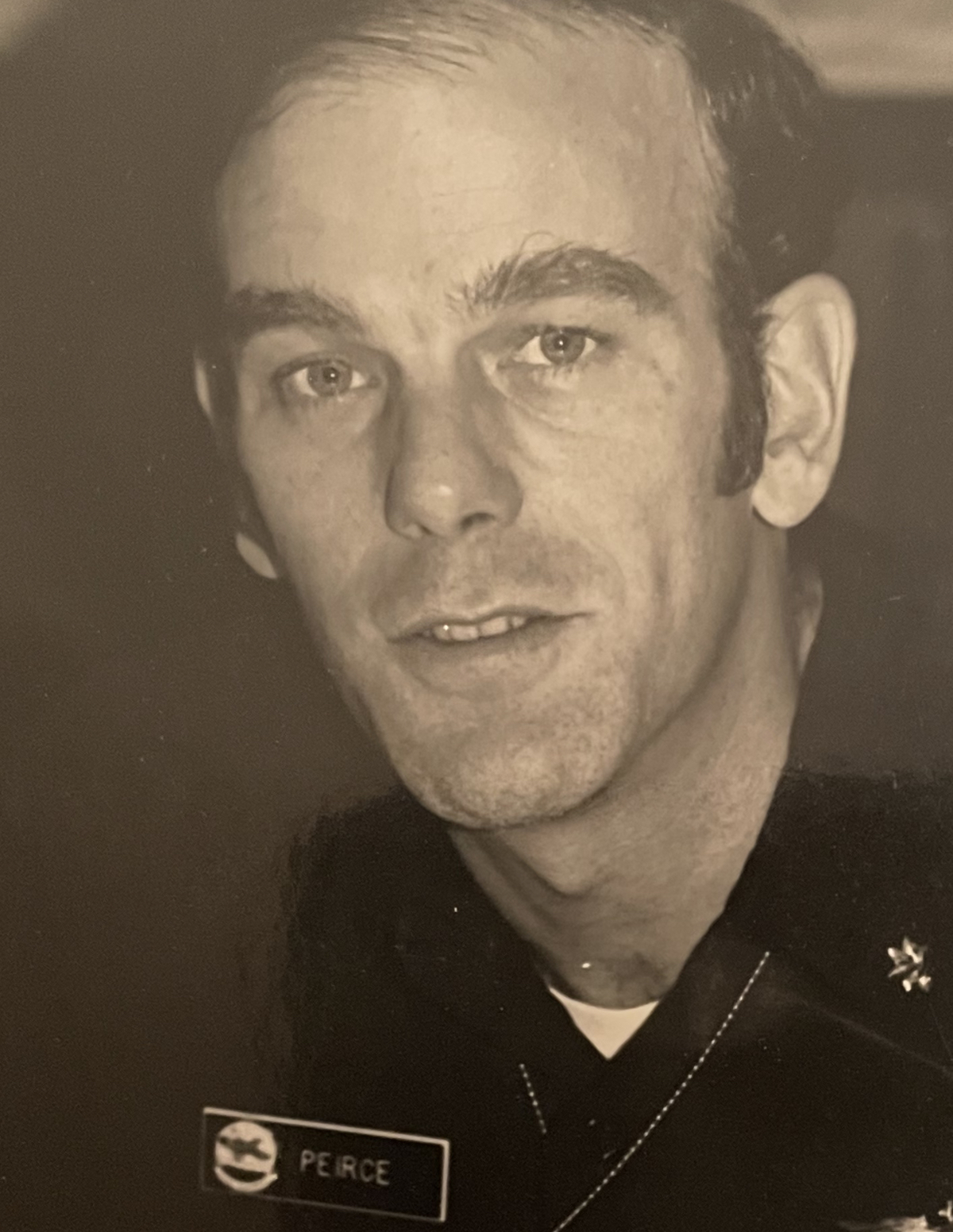
District of Columbia
Opening of Pride exhibition at Smithsonian’s African art museum postponed until 2026
Exhibition initially planned to open before WorldPride
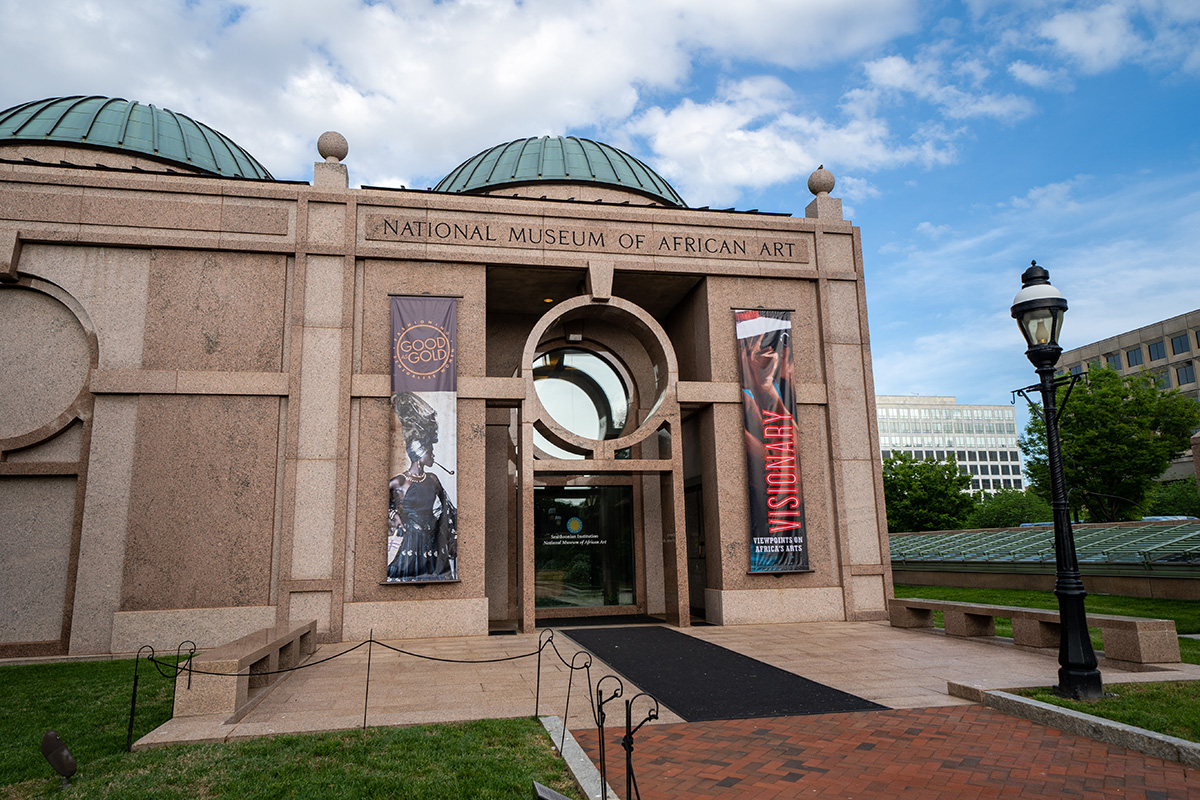
An exhibition of the works of art from LGBTQ African artists at the Smithsonian Institution’s National Museum of African Art was abruptly postponed due to “our current budgetary situation,” a museum spokesperson told the Washington Post.
The exhibition is entitled, “Here: Pride and Belonging in African Art.”
The Post, which broke the story about LGBTQ exhibition’s postponement on May 6, reports that the museum denied that the postponement was brought about by the Trump-Vance administration’s executive order restricting certain content at Smithsonian museums or the current political climate.
“This exhibition was on a very ambitious schedule to meet WorldPride, and we did not have enough time to secure all the private sector funds we had hoped to due to shifts in the fundraising environment,” the Post quoted Smithsonian spokesperson Jennifer Mitchell as saying.
Mitchell was referring to plans to open the exhibition in late May to coincide with the WorldPride events, which are scheduled to take place in D.C. from May 17-June 6.
The Post reports that the exhibition is now expected to open in February 2026 and to close at its originally scheduled closing time in August 2026.
The National Museum of African Art’s website describes the LGBTQ exhibition as consisting of “artists across Africa and the diaspora whose artworks connect to their identities and experiences as LGBTQ+ people.” It says those people are “featured as the first continental and diasporic survey of its scale and scope outside of Africa.”
The website statement adds, “The show assembles artists whose work has implicitly or explicitly challenged local and global legacies of homophobia and bigotry, offering images of alternative futures as well as celebrations of intimacy, faith, family, and joy.”
The Post reported that Mitchell “declined to say whether donors had withdrawn their support, explaining that she could not comment on private donors relations.”
Sources familiar with the Smithsonian have pointed out that private donors, including corporations, are the main source of funding for specific Smithsonian exhibitions. The federal government, with funds approved by Congress, traditionally has covered costs supporting the museum buildings, infrastructure, and upkeep.
District of Columbia
Bet Mishpachah to honor Fauci with lifetime achievement award
As part of its 50th anniversary celebration, Bet Mishpachah will present the Harvey Milk Chesed Award to Dr. Anthony S. Fauci in recognition of his groundbreaking leadership in infectious disease research and decades of service to global public health.
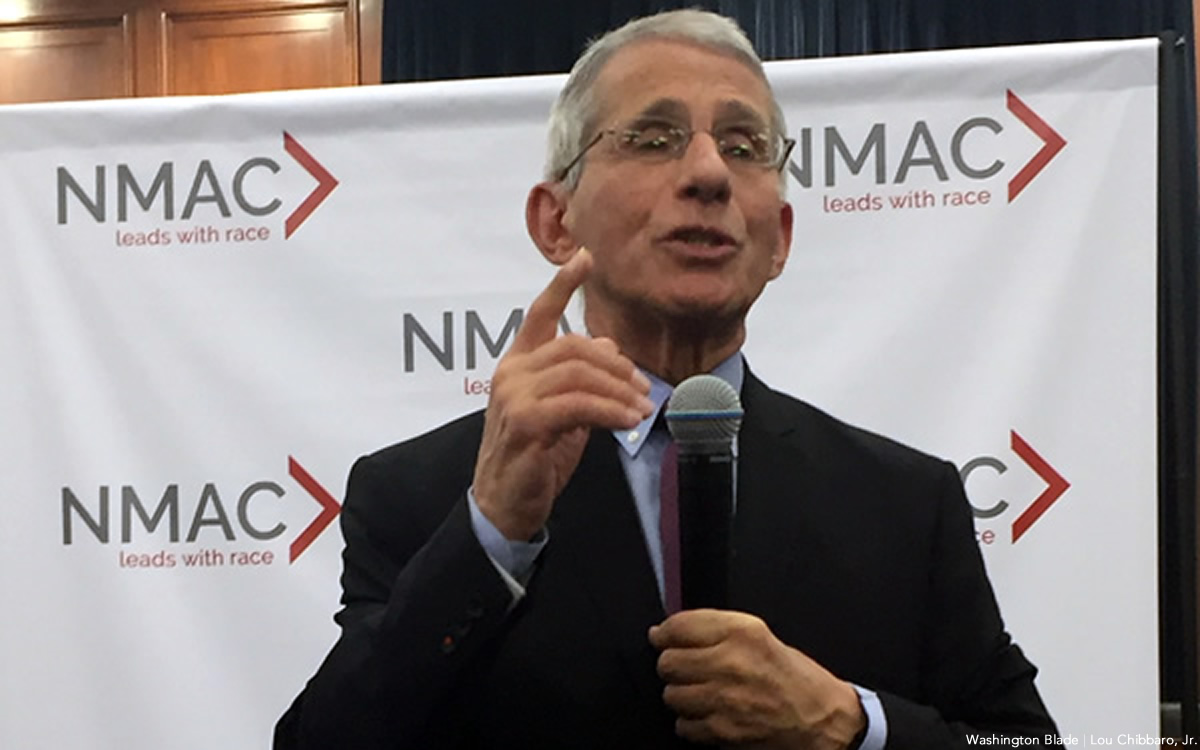
Bet Mishpachah, Washington’s LGBTQ synagogue, on Wednesday will honor former National Institute of Allergy and Infectious Diseases Director Dr. Anthony Fauci with an award for his lifelong devotion to public health and service.
Dr. Fauci will receive the Harvey Milk Chesed Award on May 7 at 7 p.m. in Cafritz Hall at the Edlavitch Jewish Community Center of Washington, D.C., at 1529 16th Street, N.W.
The award is given annually to someone who has made “outstanding” contributions to the LGBTQ+ and Jewish communities that “exemplify the virtue of chesed, or ‘lovingkindness.’” Fauci’s commitment to combating infectious diseases-HIV/AIDS, respiratory infections, diarrheal diseases, tuberculosis, malaria, Ebola, Zika, and COVID-19-as well as his leadership in public health policy, embodies this value, according to Bet Mishpachah President Joseph Pomper.
“Bet Mishpachah is honored to have this opportunity to recognize Dr. Fauci for his lifelong commitment to the health and well-being of millions of people around the world,” said Pomper. “As members of the LGBTQ+ community, we are especially thankful for his courage and dedication in the fight against HIV/AIDS. He stood with us at a time when our community was often shunned and stigmatized. Today, as members of our community are again under attack, his leadership in that crisis and throughout his career serves as a shining example of the spirit of chesed (lovingkindness) that we honor with this award.”
Following the presentation, Fauci will join his longtime friend and colleague Jeff Levi — emeritus professor at the Milken Institute School of Public Health at George Washington University and former deputy director of the White House Office of National AIDS Policy — for a conversation.
Fauci advised seven presidents on key health issues, most prominently HIV/AIDS, and helped create the President’s Emergency Plan for AIDS Relief (PEPFAR), which has saved more than 20 million lives globally.
The event is part of Bet Mishpachah’s 50th anniversary celebration. Registration is closed, but waitlist requests can be sent to [email protected].
District of Columbia
WorldPride permits for National Mall have yet to be approved
Organizers say application process is going according to plans
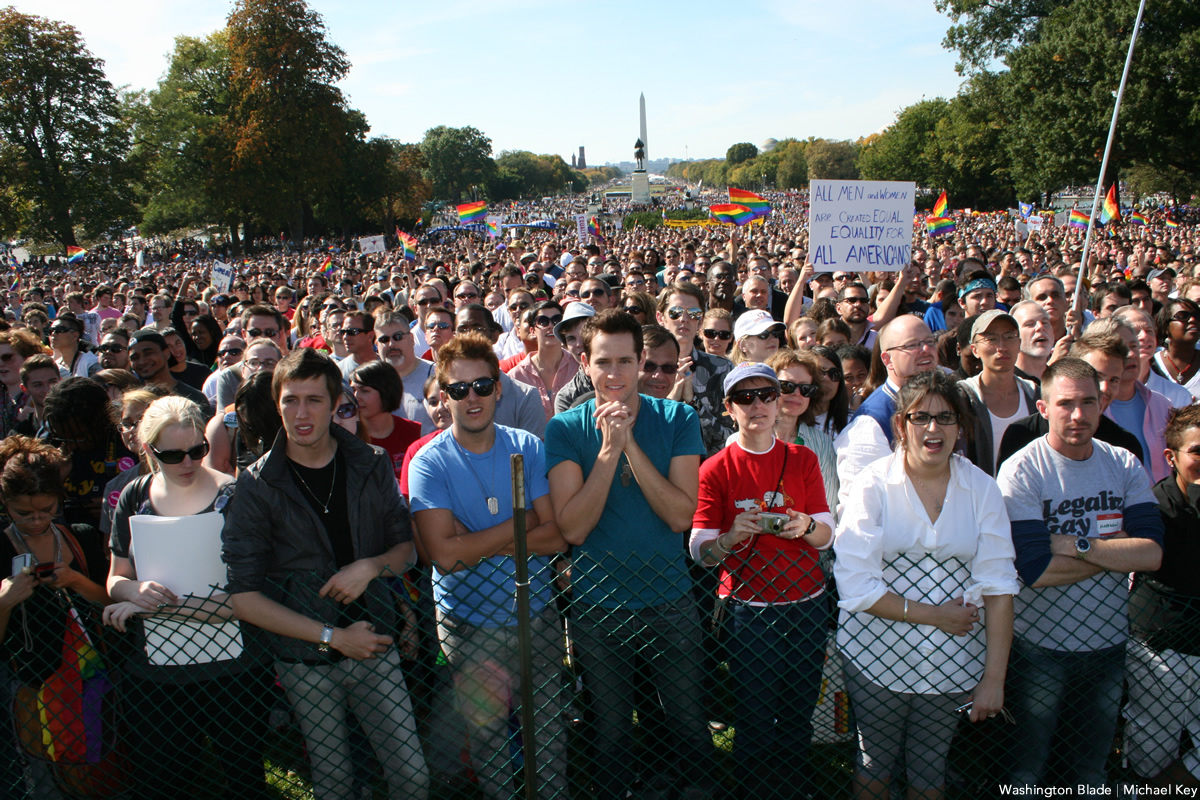
Less than two weeks before the first events of WorldPride 2025 in D.C. are scheduled to begin on May 17, the U.S. National Park Service has yet to officially approve the permits needed for what organizers say will be a small number of WorldPride events scheduled to take place on the National Mall and other federal park grounds.
In response to a request by the Washington Blade for information on the status of the permit applications, National Park Service Spokesperson Brian Hall said in a May 2 email only that at least one of the permits “is still being worked on and not final.”
Hall sent the Blade a chart showing what appeared to be five WorldPride events under consideration for a permit, with four of them set to take place on federal park grounds at or near the Lincoln Memorial.
Ashley Smith, president of Capital Pride Alliance, the nonprofit D.C. LGBTQ organization playing the lead role in organizing WorldPride 2025, said most of the several dozen WorldPride events expected to take place between May 17 and June 8 would be held at locations other than the National Mall and other federal spaces.
“There is really only a small number that we’re doing this with the National Park Service, because we’re not on a lot of federal land for everything,” he told the Blade. “But we have been in communication with them, and our team is consistently communicating with them,” Smith said.
Smith added, “We feel strongly that we will be able to move forward. I don’t believe there are major concerns with us not being able to move forward. We’re making sure we’re providing all the proper information we need to be successful.”
Some LGBTQ activists have expressed concern that the Trump administration, which has put in place policies hostile to the LGBTQ community, especially the trans community, might attempt to block the permits. But another National Park Service spokesperson said in a statement that the permit approval process does not take into consideration the political message of those applying for permits.
“Applications are approved provided no applications were previously submitted for the same dates and locations, and the organizers are able to ensure the preservation of park resources and the safety of all participants, park visitors, and community members,” according to NPS spokesperson Michael Litterst.
“It is a deliberate process that does not consider the content of the message presented,” Litterst added in a statement to the Blade last November after Trump’s election as president.
Sahand Miraminy, the Capital Pride Alliance director of operations, told the Blade in a statement that it is “customary” for the National Park Service to hold off on issuing a permit until about one week before an event is scheduled to begin.
“Oftentimes, this is also tied to the agency’s cost estimates for cleanup, turf restoration, and law enforcement reimbursements,” Miraminy said. “Typically, the National Park Service also has a policy of not sharing detailed event plans for applicants, and we certainly appreciate keeping our detailed event information secure, as it often pertains to the health and safety of our participants,” he said.
“We don’t believe it’s necessary to share with the broad public the exact permits we hold for our events as some reservations are tied to infrastructure and security measures,” Miraminy said, adding that the Capital Pride website is a “great resource” finding the numerous WorldPride events.
The website shows at least one leading event will take place on the National Mall: A June 8 International Rally and March for Freedom will begin on the steps of the Lincoln Memorial and travel from there to near the U.S. Capitol Building, the website states. It says participants in the march will then join the WorldPride Festival and Concert on Pennsylvania Avenue, N.W. near the Capitol scheduled to take place June 7-8.
Vincent Slatt, an official with D.C.’s Rainbow History Project, is among the lead organizers of that organization’s WorldPride exhibition called “Pickets, Protests and Parades: The History of Gay Pride in Washington, D.C.” The exhibition, scheduled for May 17 through July 7, will be held in Freedom Plaza, the federal parklands site on Pennsylvania Avenue, N.W., between 13th and 14th streets.
Slatt points out that Rainbow History Project has applied for its own National Park Service permit for the exhibition and, like Capital Pride Alliance, is still waiting for the permit’s approval.
“I can share great news,” Slatt said in a May 4 message to the Blade, “Rainbow History Project had our latest meeting with NPS this morning and she stated that we are on track to receive our permit. There are no problems expected.”
Slatt added, “As of this morning, our permit is only pending the finalized copy of our insurance and safety plan. These are things my board will vote to approve at our May meeting. Everything looks GREAT for RHP and our activity.”
-
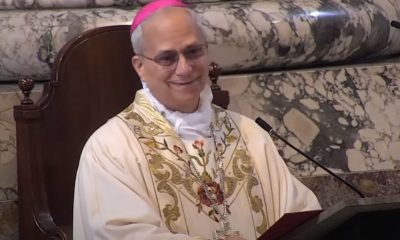
 The Vatican15 hours ago
The Vatican15 hours agoAmerican cardinal chosen as next pope
-
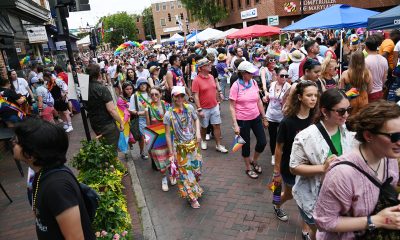
 a&e features21 hours ago
a&e features21 hours agoYour guide to the many Pride celebrations in D.C. region
-

 U.S. Supreme Court3 days ago
U.S. Supreme Court3 days agoSupreme Court allows Trump admin to enforce trans military ban
-
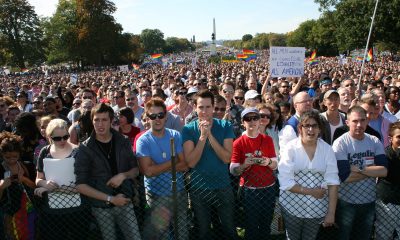
 District of Columbia2 days ago
District of Columbia2 days agoWorldPride permits for National Mall have yet to be approved









